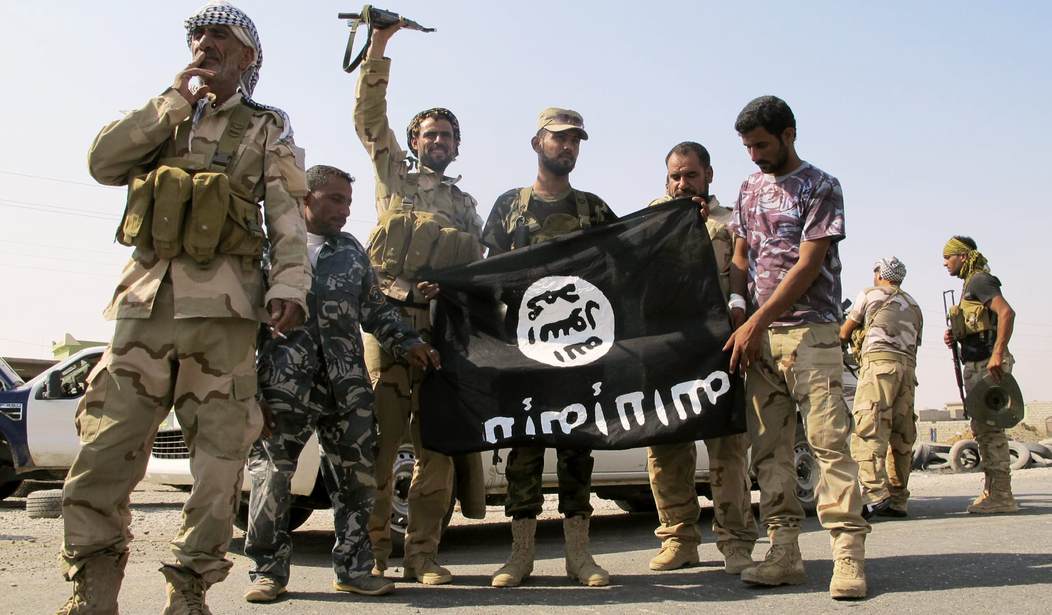Rukmini Callimachi, probably the best reporter on terrorism active today, lays it all out here:
Not ‘Lone Wolves’ After All: How ISIS Is Guiding Terror Plots From Afar
When the Islamic State identified a promising young recruit willing to carry out an attack in one of India’s major tech hubs, the group made sure to arrange everything down to the bullets he needed to kill victims. For 17 months, terrorist operatives guided the recruit, a young engineer named Mohammed Ibrahim Yazdani, through every step of what they planned to be the Islamic State’s first strike on Indian soil…
As officials around the world have faced a confusing barrage of attacks dedicated to the Islamic State, cases like Mr. Yazdani’s offer troubling examples of what counterterrorism experts are calling enabled or remote-controlled attacks: violence conceived and guided by operatives in areas controlled by the Islamic State whose only connection to the would-be attacker is the internet.
In the most basic enabled attacks, Islamic State handlers acted as confidants and coaches, coaxing recruits to embrace violence. In the Hyderabad plot, among the most involved found so far, the terrorist group reached deep into a country with strict gun laws in order to arrange for pistols and ammunition to be left in a bag swinging from the branches of a tree.
For the most part, the operatives who are conceiving and guiding such attacks are doing so from behind a wall of anonymity. When the Hyderabad plotters were arrested last summer, they could not so much as confirm the nationalities of their interlocutors in the Islamic State, let alone describe what they looked like. Because the recruits are instructed to use encrypted messaging applications, the guiding role played by the terrorist group often remains obscured.
As a result, remotely guided plots in Europe, Asia and the United States in recent years, including the attack on a community center in Garland, Tex., were initially labeled the work of “lone wolves,” with no operational ties to the Islamic State, and only later was direct communication with the group discovered.
Exactly right. The New York Times is to be congratulated on Ms. Callimachi’s work and other news media should take notice. From the start of the Muslim/Arab war on the West on 9/11, it’s been clear to anyone with an ounce of sense that most of the “lone wolves” are in fact anything but. Just as in prisons, where Muslim inmates whisper sweet nothings into fellow criminals’ ears about the wonders of jihad and “martyrdom,” so do they prey, like child molesters, on vulnerable young people on the Internet. Islam gives them a historically sanctioned excuse for their basest impulses, channeling what would be ordinary criminal behavior into something with a patina of “religion.”
While the trail of many of these plots led back to planners living in Syria, the very nature of the group’s method of remote plotting means there is little dependence on its maintaining a safe haven there or in Iraq. And visa restrictions and airport security mean little to attackers who strike where they live and no longer have to travel abroad for training.
“They are virtual coaches who are providing guidance and encouragement throughout the process — from radicalization to recruitment into a specific plot,” said Nathaniel Barr, a terrorism analyst at Valens Global, who along with Daveed Gartenstein-Ross of the Foundation for Defense of Democracies in Washington wrote one of the first articles discussing the virtual plotters.
“If you look at the communications between the attackers and the virtual plotters, you will see that there is a direct line of communication to the point where they are egging them on minutes, even seconds, before the individual carries out an attack.”
Well, that’s just great. As the abortive attack on the Louvre — one of the glories of French civilization — shows, once the barbarians are inside the gates, they’re just a cell phone away from self-detonating. If we’re ever to get serious about “homeland security,” we’re going to have to address very unpolitically-correct notions of citizenship, visas, and green cards, as well as how far civil-rights protections extend to enemies within and even “faith” itself. It’s going to make a lot of folks uncomfortable. But discomfort is better than death.
Follow me on Twitter @dkahanerules









Join the conversation as a VIP Member